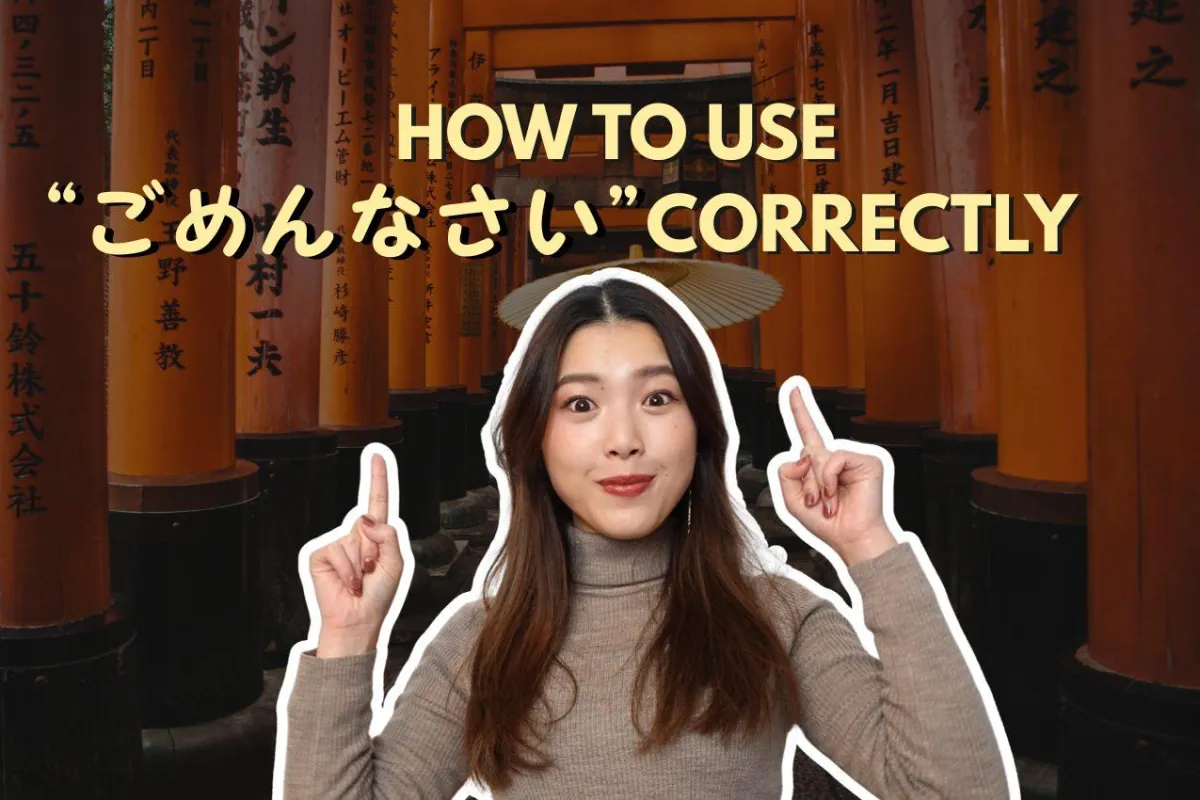
How and when to use “ごめんなさい”
How and when to use “ごめんなさい”
1. When Someone Experiences a Loss
3. When You Want to Wish for the Better
Introduction:
If something unfortunate happens to a friend; say, they catch a cold, miss their train or suffer the death of a family member, you may be inclined to tell them “ごめんなさい.”
But in Japanese, ごめんなさい is more like “Sorry for what I did.” It is placed there when it’s something you did that caused the problem or that was wrong. So, if you say ごめんなさい when your friend is telling you about a tough situation, it might sound like you’re apologizing for causing it, even though you didn’t.
So, what do Japanese people actually say in those situations? Here are some natural and culturally sensitive ways of showing empathy.
You can also watch the video here:
1. When Someone Experiences a Loss
In this situation, the correct word is ごしゅうしょうさまです。
I'm sorry for your loss. This phrase is respectfully commenting on someone who has died. You frequently hear it at funerals, or when someone is grieving. It is a way of quietly recognizing their loss and letting them know that you are experiencing their sorrow too.
2. When Someone Is Struggling
If someone’s dealing with stress, sickness, or emotional pain, Japanese people usually express empathy by commenting on how the person might be feeling rather than saying “I’m sorry.”
Some common examples are:
大変だね。 — That sounds tough.
辛いね。 — That’s painful.
辛かっただろうね。 — I bet that was hard.
残念だね。 — That’s unfortunate.
可哀想。— Poor thing / That sucks.
One minor but meaningful distinction is tense. In case the event is already over, switch to past tense: 大変だったね instead of 大変だね.
This sort of subtle nuanced reply is what to look out for - it shows an awareness and care for timing, and makes your Japanese sound a lot less stilted.
3. When You Want to Wish for the Better
If you want to show hope that things improve, use〜といいね, which means“I hope…”
For example:
早く良くなるといいね。— I hope you get better soon.
明日晴れるといいね。— I hope it’s sunny tomorrow.
テストうまくいくといいね。— I hope your test goes well.
This structure is warm, supportive, and shows you care about the person’s situation.
4. When Small Inconveniences Happen
If the problem is something minor, a delayed train, a cancelled plan, or forgetting an umbrella — Japanese people often react with short sounds rather than full sentences.
You’ll often hear:
えー
うわー
マジか
えー、大変!
These little sounds express empathy or surprise without making things sound too dramatic. They’re part of the natural rhythm of Japanese communication.
Cultural Insight
In Japanese culture, people often show care through quiet understanding rather than strong verbal reactions. While in English we might say “Oh no, I’m so sorry!” or “That’s terrible!”, in Japanese, phrases like大変だねor even a gentleえーfeel more natural and sincere.
It’s a subtle way of saying,“I hear you, and I feel for you,”without overstepping or drawing too much attention to yourself.
Final Thought
Next time someone tells you something sad or unfortunate, skip theごめんなさいand try one of these phrases instead. It’s a small shift, but it makes a big difference in how naturally and empathetically you connect in Japanese.
Mini Quiz
Ready to learn more?
If these questions relate to you then you are in the right place:
Ever thought of learning Japanese, but have no access to classes?
Learned Japanese, but want to speak more?
Given up on speaking Japanese before?
Been tired of your unmotivated classmates?
OR are you UNMOTIVATED to study Japanese?
Please check out our Beginners Japanese lessons! With engaging weekly lessons covering task-based conversation practice, kanji, grammar for different situations, and useful phrases, you will for sure fall in love with all the fun and warmth you will experience in Sayaka’s class. Check her 101-104 level and 201 classes out here!
